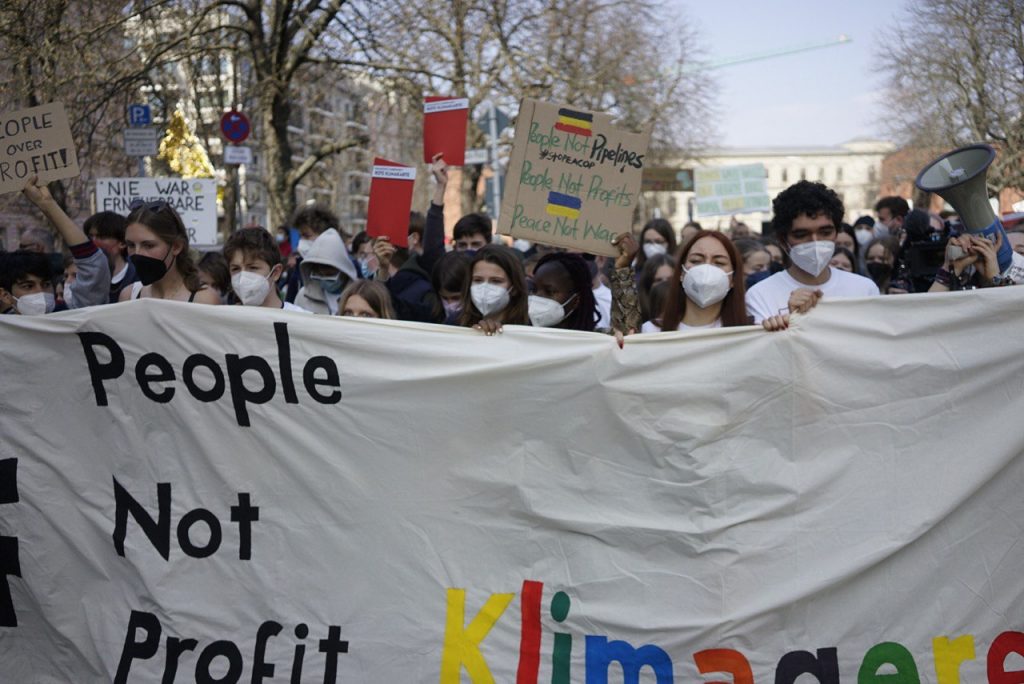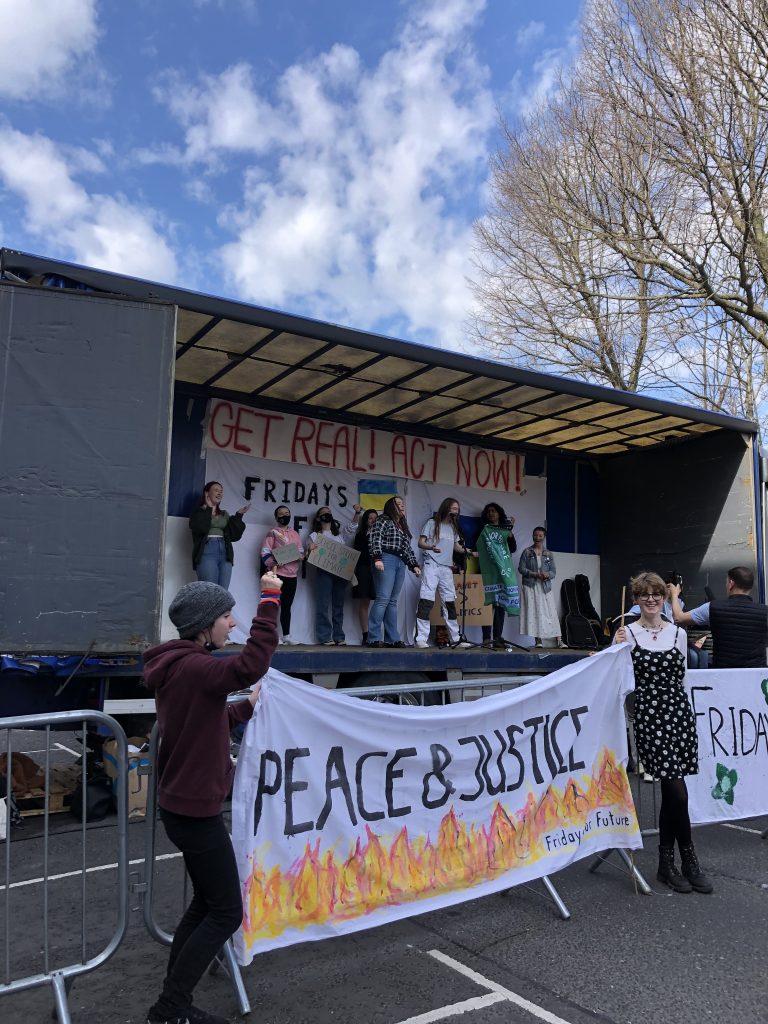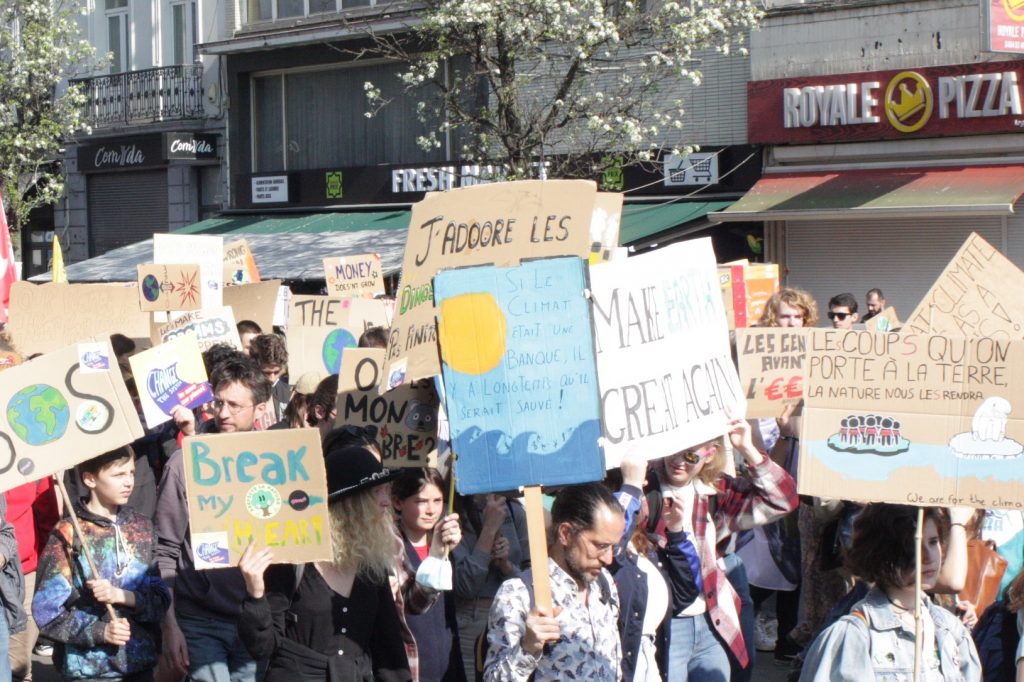This Friday, people all over the world took to the streets calling on leaders to prioritise #PeopleNotProfit. Once again, youth strikers took the lead in organising a global march to demand climate reparations for the centuries of exploitation and oppression that have resulted in the current climate crisis.
As the UN’s International Panel on Climate Change (IPCC) reported last month, climate impacts are occurring faster, and will become more severe even sooner than previously predicted. The climate crisis is becoming more certain and damaging day by day. In this context, Fridays for Future initiated another Global Climate Strike to demand action on tackling the climate emergency.

Where we’re at

This week’s strike and march highlighted the system of exploitation and oppression that has caused the climate chaos we’re experiencing. Decades of the Global North’s colonialism, extractivism and capitalism have drained the earth of its natural resources and put profit over people and climate.
Fridays for Future says:
They have deliberately sacrificed the Global South’s ecosystems and peoples for the sake of their so-called “development” and everlasting “economic growth”. Meanwhile, the working class is used as tools to build the very system that is destroying them.

Where we want to go
The climate crisis’ impacts are unfair and unequal. The communities with the smallest contribution to the climate crises will suffer the most. They are dealing with the consequences of a situation that was caused by rich countries.
So far, governments in the Global North have refused to take responsibility for their actions, neither have they offered tangible support to vulnerable communities. They have only broken promises on financial assistance and resisted demands for loss and damage compensation.
But, enough is enough. It’s time to hold them accountable.
This year’s demands call for climate reparations, a transformational process of justice in which political power is returned to the people. This would mean a technological and financial transfer from countries in the North to countries in the South.

At the moment, affected countries are forced to take out loans if they want to rebuild their communities after a natural disaster strikes. Something they will have to do more often with the increasing number of disasters due to the climate crisis.Their focus is then turned to repaying these debts, preventing them from investing in protecting their citizens. This furthers the colonial debt trap. Financial compensations are a very important part to climate reparations.
But it is not the only one!
Climate reparations also entail a follow through on demands from marginalised communities to get their land back. Affected communities also need to receive resources for adaptation, loss and damage. All of this leads to the redistribution of wealth, technology, information, care work, and political power from the North to the South, and from top to bottom.
The final claim is that we need to bring back the power to the people, and build a system and home that prioritises people, not profit!
Let’s turn our anxiety into hope and our fear into courage.
Giacomo Zattini, Climate Justice Activist at Fridays for Future
People across the world have been striking for climate for years now. Those strikes have had a real political impact. We have to keep going!
The climate crisis is a fact and so is the need for climate justice. Politicians and leaders need to act. It’s high time for them to make decisions that are based on our past, present and future.







